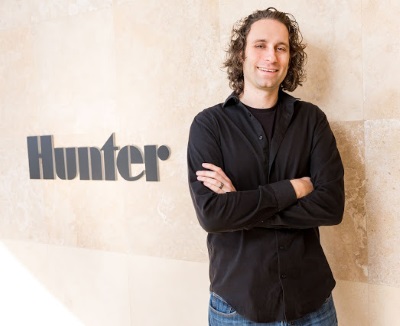Presentation: Psychologically Safe Process Evolution in a Flat Structure
Abstract
The worst place to be in business is in a state of complacency with no process iteration. While you are comfortably working the way you’ve always worked, other organizations will find ways to out maneuver you. Through a process of constant iteration, you can find the cutting edge advantages faster than your opponents. At Hunter Industries, our software development group practices Mob Programming and has a flat structure with management “Homeowners Associations (HOAs)”. These groups exist to empower the teams to evolve quickly and effectively with feedback loops and not micromanagement. From solid bi-annual goal setting, to industry leading quality practices, we’ve found ways to evolve our practices beyond the bleeding edge and in this talk we share how we do it. You will walk away with practical ideas for how to add evolutionary management and process iteration into your company.
In this session you will learn how to:
- Establish a safe environment for collaborating on the processes at your organization
- Encourage new ideas to emerge, and treat them like experiments
- Decentralize the process and avoid deferring to “the bosses ideas”
- Identify good and bad patterns by relating to our successes and failures
- Escape complacency in your organization by allowing the good ideas to flourish and removing the bad ones from your processes
What is the focus of your work today?
I manage a team of twenty seven people. The focus of my work is to make sure that that continues to run well. I do a combination of servant leadership, focus on psychological safety, and distributing decision making within the team, to make that effective.
What’s the motivation for this talk?
In the early days of scaling our process we decided that we didn't want to have managers within the group and instead allow the team to create its own management structure. We've done many retrospectives and other things, and we've created a process evolution.
For example, to update our budgeting process the team can schedule a retrospective and make a decision around a new experiment that will be run on the process. Those people are responsible for making sure that there's a feedback loop and a way to iterate on the process going forward.
It has shown that the department can evolve on its own and we adopt new practices and get rid of old practices within our group, and everybody is engaged and involved in the decision making and that has been very successful for us.
How would you describe the persona and level of the target audience?
This can be anyone managing a small team or who is behind a grassroots movement at a company to do organizational change initiatives, or somebody who is in a director position or higher. The content of the talk is especially for people that believe in empowering employees and the theory Y style management.
Is this going to end up being an implementation of Holacracy?
It is not. but some aspects of this are similar. The main thing is that this formed very organically. We had a manager and then that manager left and then we didn't replace that manager for about six months and then the company decided to institute a new software development department and put me in the lead position for that. I asked the team: do we want to take on a new management structure and we said no. Originally, we made a management kanban board where any management task would just go to the kanban board and anybody on the team could take it. And gradually over time the amount of management work grew so much that we then retrospected it and came to this decision. The facilitators in our model are responsible for creating a cycle of experimentation on a process or rule. In the holacracy model it's different because the “Lead Link” role is responsible for much more and creates a rigid hierarchy inside a “circle”
Similar Talks
Scaling DB Access for Billions of Queries Per Day @PayPal

Software Engineer @PayPal
Petrica Voicu
Not Sold Yet, GraphQL: A Humble Tale From Skeptic to Enthusiast

Software Engineer @Netflix
Garrett Heinlen
Let's talk locks!

Software Engineer @Samsara
Kavya Joshi
PID Loops and the Art of Keeping Systems Stable

Senior Principal Engineer @awscloud
Colm MacCárthaigh
Are We Really Cloud-Native?

Director of Technology @Luminis_eu
Bert Ertman
The Trouble With Learning in Complex Systems

Senior Cloud Advocate @Microsoft
Jason Hand
How Did Things Go Right? Learning More From Incidents

Site Reliability Engineering @Netflix
Ryan Kitchens
Graceful Degradation as a Feature

Director of Product @GremlinInc
Lorne Kligerman
What Breaks Our Systems: A Taxonomy of Black Swans

Site Reliability Engineer @Slack, Contributor to Seeking SRE, & SRECon Steering Committee
